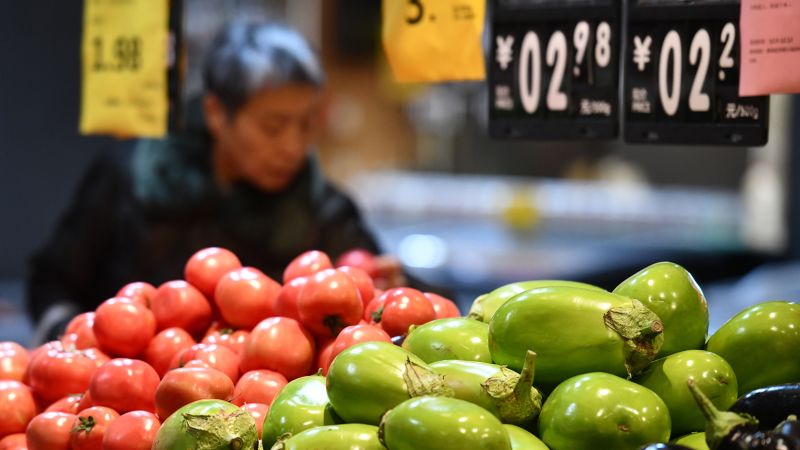While many central banks around the world are still trying to cool inflation, China is grappling with falling prices.
The Consumer Price Index (CPI) dropped 0.5% in November on an annual basis, the biggest fall since the depths of the pandemic three years ago, according to data released by China’s National Bureau of Statistics on Saturday.
The drop marked an acceleration in the rate of deflation from October, when the CPI fell 0.2% from a year earlier, and prompted calls for urgent action from Beijing to boost demand and prevent a downward spiral of prices.
The data come days after Chinese policymakers vowed to strengthen fiscal and monetary support to boost the world’s second biggest economy, which is struggling with a real-estate crisis, high youth unemployment and subdued consumer confidence.



The article states: “Deflation is bad for the economy because consumers and companies may put off purchases or investments in anticipation of prices falling further. That in turn could further slow the economy, and create a vicious cycle.” China has a robust export business, let’s say you wanted a toaster to buy, you don’t need it you just want it, and this month it’s $12, but you remember seeing it for $15 last month and $21 the month before. So you wait and next month it’s $10. Now since you aren’t in a hurry to get this item why not wait and see how low it goes? Meanwhile Mr toaster salesman’s pulling his hair out because he can’t slash prices to get rid of this inventory fast enough. Or something like that. Now the Chinese government can do several things to go back into the inflation level, one of which is just print money. They also say in the article that they would rather see prices rise naturally and they believe that’s what will happen.
People don’t work like that, otherwise sales would be the only time people buy things. The relationship in reality most likely the reverse: people put off purchases for other reasons (i.e. “the economy” isn’t as rosy as economists’ handpicked numbers claim) and people put off purchases because they can’t afford it, so deflation follows.
True, but my example aside the economy isn’t an indicator of how a person reacts but how a populous reacts. Following and reacting to trends comes naturally to our brains.